

Why is it important to do a literature review in research?
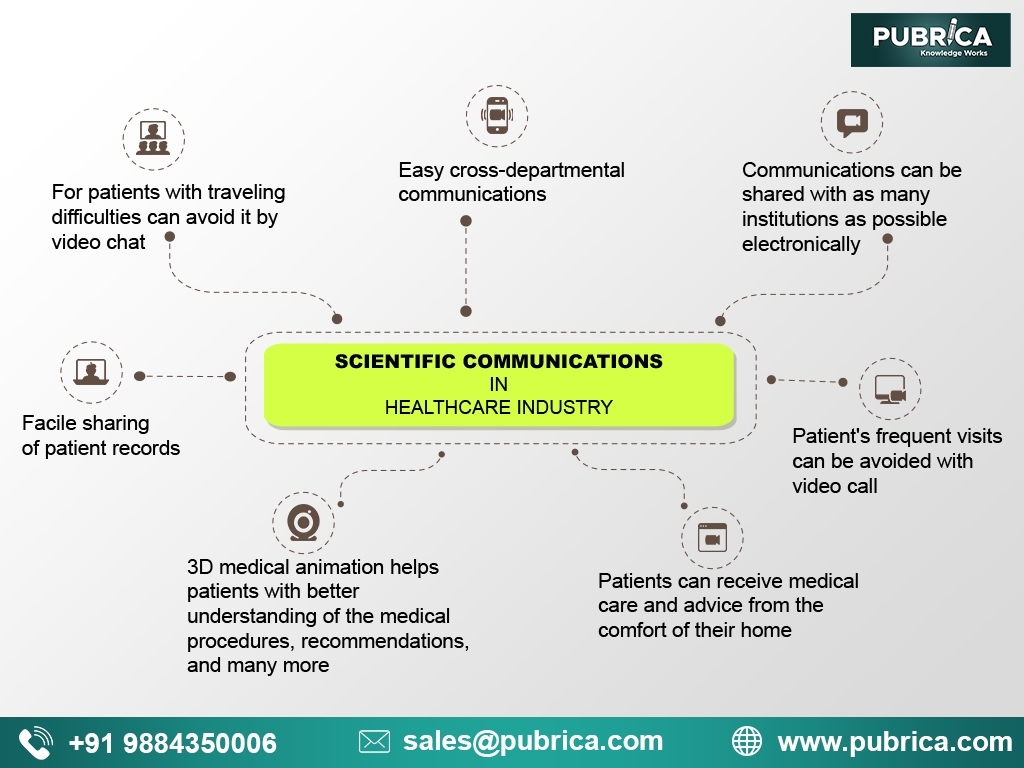
The importance of scientific communication in the healthcare industry
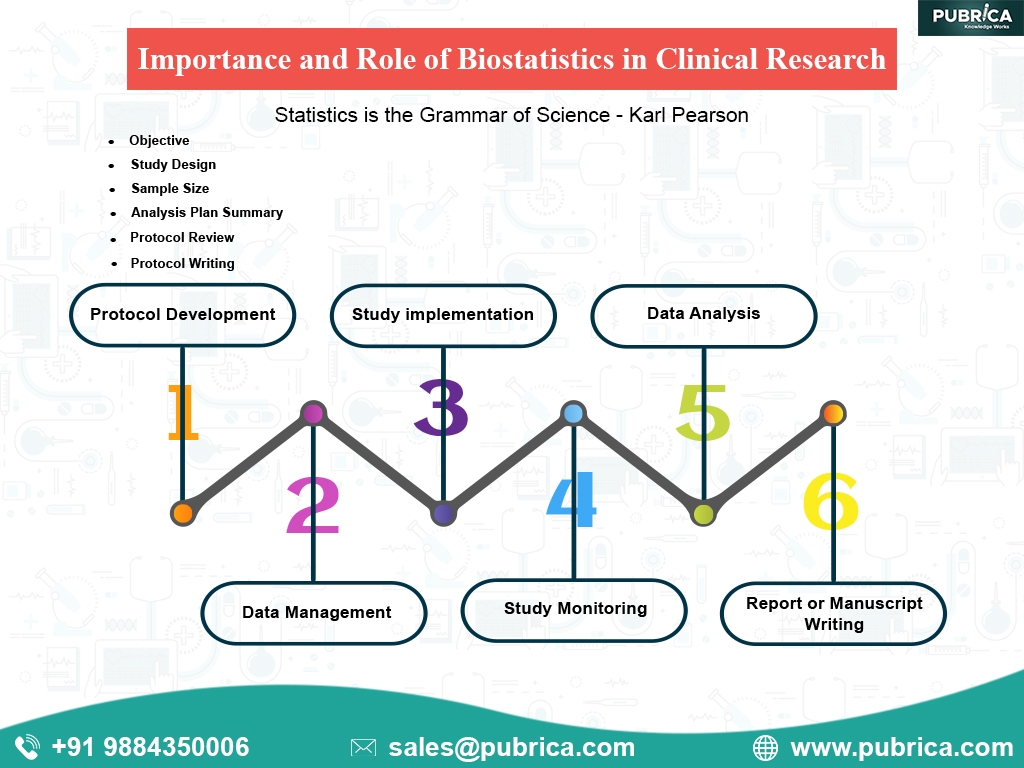
The Importance and Role of Biostatistics in Clinical Research
“A substantive, thorough, sophisticated literature review is a precondition for doing substantive, thorough, sophisticated research”. Boote and Baile 2005
Authors of manuscripts treat writing a literature review as a routine work or a mere formality. But a seasoned one knows the purpose and importance of a well-written literature review. Since it is one of the basic needs for researches at any level, they have to be done vigilantly. Only then the reader will know that the basics of research have not been neglected.
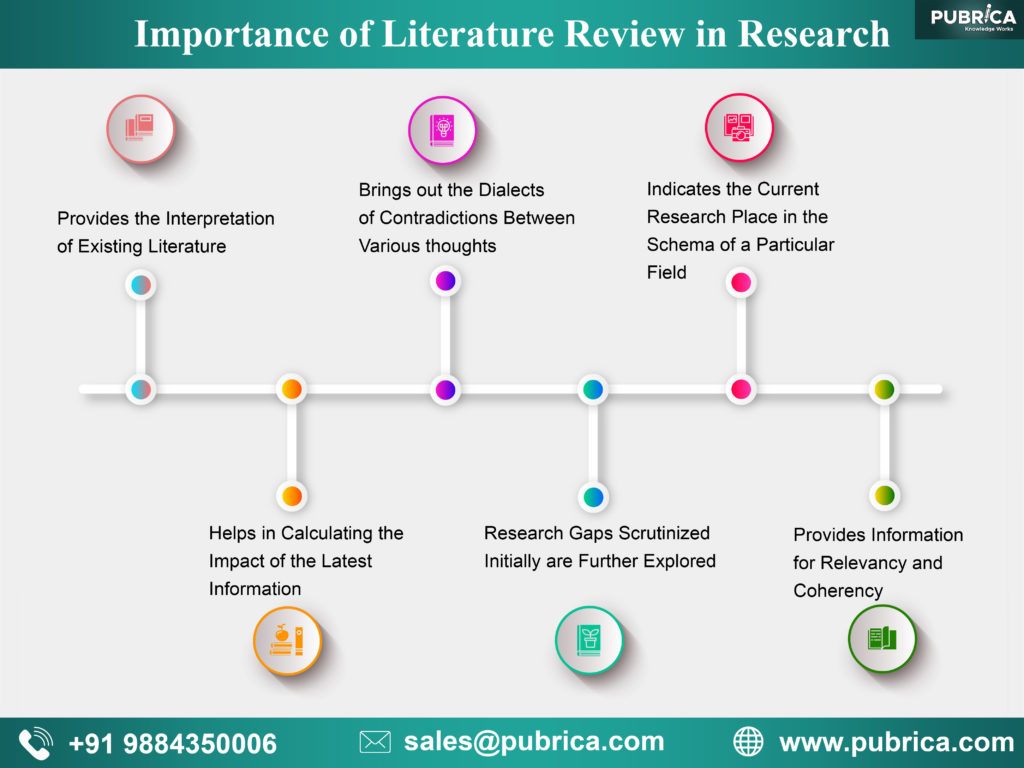
The aim of any literature review is to summarize and synthesize the arguments and ideas of existing knowledge in a particular field without adding any new contributions. Being built on existing knowledge they help the researcher to even turn the wheels of the topic of research. It is possible only with profound knowledge of what is wrong in the existing findings in detail to overpower them. For other researches, the literature review gives the direction to be headed for its success.
The common perception of literature review and reality:
As per the common belief, literature reviews are only a summary of the sources related to the research. And many authors of scientific manuscripts believe that they are only surveys of what are the researches are done on the chosen topic. But on the contrary, it uses published information from pertinent and relevant sources like
- Scholarly books
- Scientific papers
- Latest studies in the field
- Established school of thoughts
- Relevant articles from renowned scientific journals
and many more for a field of study or theory or a particular problem to do the following:
- Summarize into a brief account of all information
- Synthesize the information by restructuring and reorganizing
- Critical evaluation of a concept or a school of thought or ideas
- Familiarize the authors to the extent of knowledge in the particular field
- Encapsulate
- Compare & contrast
By doing the above on the relevant information, it provides the reader of the scientific manuscript with the following for a better understanding of it:
- It establishes the authors’ in-depth understanding and knowledge of their field subject
- It gives the background of the research
- Portrays the scientific manuscript plan of examining the research result
- Illuminates on how the knowledge has changed within the field
- Highlights what has already been done in a particular field
- Information of the generally accepted facts, emerging and current state of the topic of research
- Identifies the research gap that is still unexplored or under-researched fields
- Demonstrates how the research fits within a larger field of study
- Provides an overview of the sources explored during the research of a particular topic
Importance of literature review in research:
The importance of literature review in scientific manuscripts can be condensed into an analytical feature to enable the multifold reach of its significance. It adds value to the legitimacy of the research in many ways:
- Provides the interpretation of existing literature in light of updated developments in the field to help in establishing the consistency in knowledge and relevancy of existing materials
- It helps in calculating the impact of the latest information in the field by mapping their progress of knowledge.
- It brings out the dialects of contradictions between various thoughts within the field to establish facts
- The research gaps scrutinized initially are further explored to establish the latest facts of theories to add value to the field
- Indicates the current research place in the schema of a particular field
- Provides information for relevancy and coherency to check the research
- Apart from elucidating the continuance of knowledge, it also points out areas that require further investigation and thus aid as a starting point of any future research
- Justifies the research and sets up the research question
- Sets up a theoretical framework comprising the concepts and theories of the research upon which its success can be judged
- Helps to adopt a more appropriate methodology for the research by examining the strengths and weaknesses of existing research in the same field
- Increases the significance of the results by comparing it with the existing literature
- Provides a point of reference by writing the findings in the scientific manuscript
- Helps to get the due credit from the audience for having done the fact-finding and fact-checking mission in the scientific manuscripts
- The more the reference of relevant sources of it could increase more of its trustworthiness with the readers
- Helps to prevent plagiarism by tailoring and uniquely tweaking the scientific manuscript not to repeat other’s original idea
- By preventing plagiarism , it saves the scientific manuscript from rejection and thus also saves a lot of time and money
- Helps to evaluate, condense and synthesize gist in the author’s own words to sharpen the research focus
- Helps to compare and contrast to show the originality and uniqueness of the research than that of the existing other researches
- Rationalizes the need for conducting the particular research in a specified field
- Helps to collect data accurately for allowing any new methodology of research than the existing ones
- Enables the readers of the manuscript to answer the following questions of its readers for its better chances for publication
- What do the researchers know?
- What do they not know?
- Is the scientific manuscript reliable and trustworthy?
- What are the knowledge gaps of the researcher?
22. It helps the readers to identify the following for further reading of the scientific manuscript:
- What has been already established, discredited and accepted in the particular field of research
- Areas of controversy and conflicts among different schools of thought
- Unsolved problems and issues in the connected field of research
- The emerging trends and approaches
- How the research extends, builds upon and leaves behind from the previous research
A profound literature review with many relevant sources of reference will enhance the chances of the scientific manuscript publication in renowned and reputed scientific journals .
References:
http://www.math.montana.edu/jobo/phdprep/phd6.pdf
journal Publishing services | Scientific Editing Services | Medical Writing Services | scientific research writing service | Scientific communication services
Related Topics:
Meta Analysis
Scientific Research Paper Writing
Medical Research Paper Writing
Scientific Communication in healthcare
pubrica academy
Related posts.

Statistical analyses of case-control studies

PUB - Selecting material (e.g. excipient, active pharmaceutical ingredient) for drug development
Selecting material (e.g. excipient, active pharmaceutical ingredient, packaging material) for drug development

PUB - Health Economics of Data Modeling
Health economics in clinical trials
Comments are closed.
News alert: UC Berkeley has announced its next university librarian
Secondary menu
- Log in to your Library account
- Hours and Maps
- Connect from Off Campus
- UC Berkeley Home
Search form
Conducting a literature review: why do a literature review, why do a literature review.
- How To Find "The Literature"
- Found it -- Now What?
Besides the obvious reason for students -- because it is assigned! -- a literature review helps you explore the research that has come before you, to see how your research question has (or has not) already been addressed.
You identify:
- core research in the field
- experts in the subject area
- methodology you may want to use (or avoid)
- gaps in knowledge -- or where your research would fit in
It Also Helps You:
- Publish and share your findings
- Justify requests for grants and other funding
- Identify best practices to inform practice
- Set wider context for a program evaluation
- Compile information to support community organizing
Great brief overview, from NCSU
Want To Know More?
- Next: How To Find "The Literature" >>
- Last Updated: Dec 8, 2023 10:11 AM
- URL: https://guides.lib.berkeley.edu/litreview
- UConn Library
- Literature Review: The What, Why and How-to Guide
- Introduction
Literature Review: The What, Why and How-to Guide — Introduction
- Getting Started
- How to Pick a Topic
- Strategies to Find Sources
- Evaluating Sources & Lit. Reviews
- Tips for Writing Literature Reviews
- Writing Literature Review: Useful Sites
- Citation Resources
- Other Academic Writings
What are Literature Reviews?
So, what is a literature review? "A literature review is an account of what has been published on a topic by accredited scholars and researchers. In writing the literature review, your purpose is to convey to your reader what knowledge and ideas have been established on a topic, and what their strengths and weaknesses are. As a piece of writing, the literature review must be defined by a guiding concept (e.g., your research objective, the problem or issue you are discussing, or your argumentative thesis). It is not just a descriptive list of the material available, or a set of summaries." Taylor, D. The literature review: A few tips on conducting it . University of Toronto Health Sciences Writing Centre.
Goals of Literature Reviews
What are the goals of creating a Literature Review? A literature could be written to accomplish different aims:
- To develop a theory or evaluate an existing theory
- To summarize the historical or existing state of a research topic
- Identify a problem in a field of research
Baumeister, R. F., & Leary, M. R. (1997). Writing narrative literature reviews . Review of General Psychology , 1 (3), 311-320.
What kinds of sources require a Literature Review?
- A research paper assigned in a course
- A thesis or dissertation
- A grant proposal
- An article intended for publication in a journal
All these instances require you to collect what has been written about your research topic so that you can demonstrate how your own research sheds new light on the topic.
Types of Literature Reviews
What kinds of literature reviews are written?
Narrative review: The purpose of this type of review is to describe the current state of the research on a specific topic/research and to offer a critical analysis of the literature reviewed. Studies are grouped by research/theoretical categories, and themes and trends, strengths and weakness, and gaps are identified. The review ends with a conclusion section which summarizes the findings regarding the state of the research of the specific study, the gaps identify and if applicable, explains how the author's research will address gaps identify in the review and expand the knowledge on the topic reviewed.
- Example : Predictors and Outcomes of U.S. Quality Maternity Leave: A Review and Conceptual Framework: 10.1177/08948453211037398
Systematic review : "The authors of a systematic review use a specific procedure to search the research literature, select the studies to include in their review, and critically evaluate the studies they find." (p. 139). Nelson, L. K. (2013). Research in Communication Sciences and Disorders . Plural Publishing.
- Example : The effect of leave policies on increasing fertility: a systematic review: 10.1057/s41599-022-01270-w
Meta-analysis : "Meta-analysis is a method of reviewing research findings in a quantitative fashion by transforming the data from individual studies into what is called an effect size and then pooling and analyzing this information. The basic goal in meta-analysis is to explain why different outcomes have occurred in different studies." (p. 197). Roberts, M. C., & Ilardi, S. S. (2003). Handbook of Research Methods in Clinical Psychology . Blackwell Publishing.
- Example : Employment Instability and Fertility in Europe: A Meta-Analysis: 10.1215/00703370-9164737
Meta-synthesis : "Qualitative meta-synthesis is a type of qualitative study that uses as data the findings from other qualitative studies linked by the same or related topic." (p.312). Zimmer, L. (2006). Qualitative meta-synthesis: A question of dialoguing with texts . Journal of Advanced Nursing , 53 (3), 311-318.
- Example : Women’s perspectives on career successes and barriers: A qualitative meta-synthesis: 10.1177/05390184221113735
Literature Reviews in the Health Sciences
- UConn Health subject guide on systematic reviews Explanation of the different review types used in health sciences literature as well as tools to help you find the right review type
- << Previous: Getting Started
- Next: How to Pick a Topic >>
- Last Updated: Sep 21, 2022 2:16 PM
- URL: https://guides.lib.uconn.edu/literaturereview
Harvey Cushing/John Hay Whitney Medical Library
- Collections
- Research Help
YSN Doctoral Programs: Steps in Conducting a Literature Review
- Biomedical Databases
- Global (Public Health) Databases
- Soc. Sci., History, and Law Databases
- Grey Literature
- Trials Registers
- Data and Statistics
- Public Policy
- Google Tips
- Recommended Books
- Steps in Conducting a Literature Review
What is a literature review?
A literature review is an integrated analysis -- not just a summary-- of scholarly writings and other relevant evidence related directly to your research question. That is, it represents a synthesis of the evidence that provides background information on your topic and shows a association between the evidence and your research question.
A literature review may be a stand alone work or the introduction to a larger research paper, depending on the assignment. Rely heavily on the guidelines your instructor has given you.
Why is it important?
A literature review is important because it:
- Explains the background of research on a topic.
- Demonstrates why a topic is significant to a subject area.
- Discovers relationships between research studies/ideas.
- Identifies major themes, concepts, and researchers on a topic.
- Identifies critical gaps and points of disagreement.
- Discusses further research questions that logically come out of the previous studies.
APA7 Style resources
APA Style Blog - for those harder to find answers
1. Choose a topic. Define your research question.
Your literature review should be guided by your central research question. The literature represents background and research developments related to a specific research question, interpreted and analyzed by you in a synthesized way.
- Make sure your research question is not too broad or too narrow. Is it manageable?
- Begin writing down terms that are related to your question. These will be useful for searches later.
- If you have the opportunity, discuss your topic with your professor and your class mates.
2. Decide on the scope of your review
How many studies do you need to look at? How comprehensive should it be? How many years should it cover?
- This may depend on your assignment. How many sources does the assignment require?
3. Select the databases you will use to conduct your searches.
Make a list of the databases you will search.
Where to find databases:
- use the tabs on this guide
- Find other databases in the Nursing Information Resources web page
- More on the Medical Library web page
- ... and more on the Yale University Library web page
4. Conduct your searches to find the evidence. Keep track of your searches.
- Use the key words in your question, as well as synonyms for those words, as terms in your search. Use the database tutorials for help.
- Save the searches in the databases. This saves time when you want to redo, or modify, the searches. It is also helpful to use as a guide is the searches are not finding any useful results.
- Review the abstracts of research studies carefully. This will save you time.
- Use the bibliographies and references of research studies you find to locate others.
- Check with your professor, or a subject expert in the field, if you are missing any key works in the field.
- Ask your librarian for help at any time.
- Use a citation manager, such as EndNote as the repository for your citations. See the EndNote tutorials for help.
Review the literature
Some questions to help you analyze the research:
- What was the research question of the study you are reviewing? What were the authors trying to discover?
- Was the research funded by a source that could influence the findings?
- What were the research methodologies? Analyze its literature review, the samples and variables used, the results, and the conclusions.
- Does the research seem to be complete? Could it have been conducted more soundly? What further questions does it raise?
- If there are conflicting studies, why do you think that is?
- How are the authors viewed in the field? Has this study been cited? If so, how has it been analyzed?
Tips:
- Review the abstracts carefully.
- Keep careful notes so that you may track your thought processes during the research process.
- Create a matrix of the studies for easy analysis, and synthesis, across all of the studies.
- << Previous: Recommended Books
- Last Updated: Jan 4, 2024 10:52 AM
- URL: https://guides.library.yale.edu/YSNDoctoral
Libraries | Research Guides
Literature reviews, what is a literature review, learning more about how to do a literature review.
- Planning the Review
- The Research Question
- Choosing Where to Search
- Organizing the Review
- Writing the Review
A literature review is a review and synthesis of existing research on a topic or research question. A literature review is meant to analyze the scholarly literature, make connections across writings and identify strengths, weaknesses, trends, and missing conversations. A literature review should address different aspects of a topic as it relates to your research question. A literature review goes beyond a description or summary of the literature you have read.
- Sage Research Methods Core Collection This link opens in a new window SAGE Research Methods supports research at all levels by providing material to guide users through every step of the research process. SAGE Research Methods is the ultimate methods library with more than 1000 books, reference works, journal articles, and instructional videos by world-leading academics from across the social sciences, including the largest collection of qualitative methods books available online from any scholarly publisher. – Publisher
- Next: Planning the Review >>
- Last Updated: Jan 17, 2024 10:05 AM
- URL: https://libguides.northwestern.edu/literaturereviews

- University of Texas Libraries
Literature Reviews
- What is a literature review?
- Steps in the Literature Review Process
- Define your research question
- Determine inclusion and exclusion criteria
- Choose databases and search
- Review Results
- Synthesize Results
- Analyze Results
- Librarian Support
What is a Literature Review?
A literature or narrative review is a comprehensive review and analysis of the published literature on a specific topic or research question. The literature that is reviewed contains: books, articles, academic articles, conference proceedings, association papers, and dissertations. It contains the most pertinent studies and points to important past and current research and practices. It provides background and context, and shows how your research will contribute to the field.
A literature review should:
- Provide a comprehensive and updated review of the literature;
- Explain why this review has taken place;
- Articulate a position or hypothesis;
- Acknowledge and account for conflicting and corroborating points of view
From S age Research Methods
Purpose of a Literature Review
A literature review can be written as an introduction to a study to:
- Demonstrate how a study fills a gap in research
- Compare a study with other research that's been done
Or it can be a separate work (a research article on its own) which:
- Organizes or describes a topic
- Describes variables within a particular issue/problem
Limitations of a Literature Review
Some of the limitations of a literature review are:
- It's a snapshot in time. Unlike other reviews, this one has beginning, a middle and an end. There may be future developments that could make your work less relevant.
- It may be too focused. Some niche studies may miss the bigger picture.
- It can be difficult to be comprehensive. There is no way to make sure all the literature on a topic was considered.
- It is easy to be biased if you stick to top tier journals. There may be other places where people are publishing exemplary research. Look to open access publications and conferences to reflect a more inclusive collection. Also, make sure to include opposing views (and not just supporting evidence).
Source: Grant, Maria J., and Andrew Booth. “A Typology of Reviews: An Analysis of 14 Review Types and Associated Methodologies.” Health Information & Libraries Journal, vol. 26, no. 2, June 2009, pp. 91–108. Wiley Online Library, doi:10.1111/j.1471-1842.2009.00848.x.
Meryl Brodsky : Communication and Information Studies
Hannah Chapman Tripp : Biology, Neuroscience
Carolyn Cunningham : Human Development & Family Sciences, Psychology, Sociology
Larayne Dallas : Engineering
Janelle Hedstrom : Special Education, Curriculum & Instruction, Ed Leadership & Policy
Susan Macicak : Linguistics
Imelda Vetter : Dell Medical School
For help in other subject areas, please see the guide to library specialists by subject .
Periodically, UT Libraries runs a workshop covering the basics and library support for literature reviews. While we try to offer these once per academic year, we find providing the recording to be helpful to community members who have missed the session. Following is the most recent recording of the workshop, Conducting a Literature Review. To view the recording, a UT login is required.
- October 26, 2022 recording
- Last Updated: Oct 26, 2022 2:49 PM
- URL: https://guides.lib.utexas.edu/literaturereviews

Research Methods
- Getting Started
- Literature Review Research
- Research Design
- Research Design By Discipline
- SAGE Research Methods
- Teaching with SAGE Research Methods
Literature Review
- What is a Literature Review?
- What is NOT a Literature Review?
- Purposes of a Literature Review
- Types of Literature Reviews
- Literature Reviews vs. Systematic Reviews
- Systematic vs. Meta-Analysis
Literature Review is a comprehensive survey of the works published in a particular field of study or line of research, usually over a specific period of time, in the form of an in-depth, critical bibliographic essay or annotated list in which attention is drawn to the most significant works.
Also, we can define a literature review as the collected body of scholarly works related to a topic:
- Summarizes and analyzes previous research relevant to a topic
- Includes scholarly books and articles published in academic journals
- Can be an specific scholarly paper or a section in a research paper
The objective of a Literature Review is to find previous published scholarly works relevant to an specific topic
- Help gather ideas or information
- Keep up to date in current trends and findings
- Help develop new questions
A literature review is important because it:
- Explains the background of research on a topic.
- Demonstrates why a topic is significant to a subject area.
- Helps focus your own research questions or problems
- Discovers relationships between research studies/ideas.
- Suggests unexplored ideas or populations
- Identifies major themes, concepts, and researchers on a topic.
- Tests assumptions; may help counter preconceived ideas and remove unconscious bias.
- Identifies critical gaps, points of disagreement, or potentially flawed methodology or theoretical approaches.
- Indicates potential directions for future research.
All content in this section is from Literature Review Research from Old Dominion University
Keep in mind the following, a literature review is NOT:
Not an essay
Not an annotated bibliography in which you summarize each article that you have reviewed. A literature review goes beyond basic summarizing to focus on the critical analysis of the reviewed works and their relationship to your research question.
Not a research paper where you select resources to support one side of an issue versus another. A lit review should explain and consider all sides of an argument in order to avoid bias, and areas of agreement and disagreement should be highlighted.
A literature review serves several purposes. For example, it
- provides thorough knowledge of previous studies; introduces seminal works.
- helps focus one’s own research topic.
- identifies a conceptual framework for one’s own research questions or problems; indicates potential directions for future research.
- suggests previously unused or underused methodologies, designs, quantitative and qualitative strategies.
- identifies gaps in previous studies; identifies flawed methodologies and/or theoretical approaches; avoids replication of mistakes.
- helps the researcher avoid repetition of earlier research.
- suggests unexplored populations.
- determines whether past studies agree or disagree; identifies controversy in the literature.
- tests assumptions; may help counter preconceived ideas and remove unconscious bias.
As Kennedy (2007) notes*, it is important to think of knowledge in a given field as consisting of three layers. First, there are the primary studies that researchers conduct and publish. Second are the reviews of those studies that summarize and offer new interpretations built from and often extending beyond the original studies. Third, there are the perceptions, conclusions, opinion, and interpretations that are shared informally that become part of the lore of field. In composing a literature review, it is important to note that it is often this third layer of knowledge that is cited as "true" even though it often has only a loose relationship to the primary studies and secondary literature reviews.
Given this, while literature reviews are designed to provide an overview and synthesis of pertinent sources you have explored, there are several approaches to how they can be done, depending upon the type of analysis underpinning your study. Listed below are definitions of types of literature reviews:
Argumentative Review This form examines literature selectively in order to support or refute an argument, deeply imbedded assumption, or philosophical problem already established in the literature. The purpose is to develop a body of literature that establishes a contrarian viewpoint. Given the value-laden nature of some social science research [e.g., educational reform; immigration control], argumentative approaches to analyzing the literature can be a legitimate and important form of discourse. However, note that they can also introduce problems of bias when they are used to to make summary claims of the sort found in systematic reviews.
Integrative Review Considered a form of research that reviews, critiques, and synthesizes representative literature on a topic in an integrated way such that new frameworks and perspectives on the topic are generated. The body of literature includes all studies that address related or identical hypotheses. A well-done integrative review meets the same standards as primary research in regard to clarity, rigor, and replication.
Historical Review Few things rest in isolation from historical precedent. Historical reviews are focused on examining research throughout a period of time, often starting with the first time an issue, concept, theory, phenomena emerged in the literature, then tracing its evolution within the scholarship of a discipline. The purpose is to place research in a historical context to show familiarity with state-of-the-art developments and to identify the likely directions for future research.
Methodological Review A review does not always focus on what someone said [content], but how they said it [method of analysis]. This approach provides a framework of understanding at different levels (i.e. those of theory, substantive fields, research approaches and data collection and analysis techniques), enables researchers to draw on a wide variety of knowledge ranging from the conceptual level to practical documents for use in fieldwork in the areas of ontological and epistemological consideration, quantitative and qualitative integration, sampling, interviewing, data collection and data analysis, and helps highlight many ethical issues which we should be aware of and consider as we go through our study.
Systematic Review This form consists of an overview of existing evidence pertinent to a clearly formulated research question, which uses pre-specified and standardized methods to identify and critically appraise relevant research, and to collect, report, and analyse data from the studies that are included in the review. Typically it focuses on a very specific empirical question, often posed in a cause-and-effect form, such as "To what extent does A contribute to B?"
Theoretical Review The purpose of this form is to concretely examine the corpus of theory that has accumulated in regard to an issue, concept, theory, phenomena. The theoretical literature review help establish what theories already exist, the relationships between them, to what degree the existing theories have been investigated, and to develop new hypotheses to be tested. Often this form is used to help establish a lack of appropriate theories or reveal that current theories are inadequate for explaining new or emerging research problems. The unit of analysis can focus on a theoretical concept or a whole theory or framework.
* Kennedy, Mary M. "Defining a Literature." Educational Researcher 36 (April 2007): 139-147.
All content in this section is from The Literature Review created by Dr. Robert Larabee USC
Robinson, P. and Lowe, J. (2015), Literature reviews vs systematic reviews. Australian and New Zealand Journal of Public Health, 39: 103-103. doi: 10.1111/1753-6405.12393

What's in the name? The difference between a Systematic Review and a Literature Review, and why it matters . By Lynn Kysh from University of Southern California

Systematic review or meta-analysis?
A systematic review answers a defined research question by collecting and summarizing all empirical evidence that fits pre-specified eligibility criteria.
A meta-analysis is the use of statistical methods to summarize the results of these studies.
Systematic reviews, just like other research articles, can be of varying quality. They are a significant piece of work (the Centre for Reviews and Dissemination at York estimates that a team will take 9-24 months), and to be useful to other researchers and practitioners they should have:
- clearly stated objectives with pre-defined eligibility criteria for studies
- explicit, reproducible methodology
- a systematic search that attempts to identify all studies
- assessment of the validity of the findings of the included studies (e.g. risk of bias)
- systematic presentation, and synthesis, of the characteristics and findings of the included studies
Not all systematic reviews contain meta-analysis.
Meta-analysis is the use of statistical methods to summarize the results of independent studies. By combining information from all relevant studies, meta-analysis can provide more precise estimates of the effects of health care than those derived from the individual studies included within a review. More information on meta-analyses can be found in Cochrane Handbook, Chapter 9 .
A meta-analysis goes beyond critique and integration and conducts secondary statistical analysis on the outcomes of similar studies. It is a systematic review that uses quantitative methods to synthesize and summarize the results.
An advantage of a meta-analysis is the ability to be completely objective in evaluating research findings. Not all topics, however, have sufficient research evidence to allow a meta-analysis to be conducted. In that case, an integrative review is an appropriate strategy.
Some of the content in this section is from Systematic reviews and meta-analyses: step by step guide created by Kate McAllister.
- << Previous: Getting Started
- Next: Research Design >>
- Last Updated: Aug 21, 2023 4:07 PM
- URL: https://guides.lib.udel.edu/researchmethods
- Link to facebook
- Link to linkedin
- Link to twitter
- Link to youtube
- Writing Tips
5 Reasons the Literature Review Is Crucial to Your Paper

3-minute read
- 8th November 2016
People often treat writing the literature review in an academic paper as a formality. Usually, this means simply listing various studies vaguely related to their work and leaving it at that.
But this overlooks how important the literature review is to a well-written experimental report or research paper. As such, we thought we’d take a moment to go over what a literature review should do and why you should give it the attention it deserves.
What Is a Literature Review?
Common in the social and physical sciences, but also sometimes required in the humanities, a literature review is a summary of past research in your subject area.
Sometimes this is a standalone investigation of how an idea or field of inquiry has developed over time. However, more usually it’s the part of an academic paper, thesis or dissertation that sets out the background against which a study takes place.
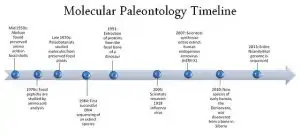
There are several reasons why we do this.
Reason #1: To Demonstrate Understanding
In a college paper, you can use a literature review to demonstrate your understanding of the subject matter. This means identifying, summarizing and critically assessing past research that is relevant to your own work.
Reason #2: To Justify Your Research
The literature review also plays a big role in justifying your study and setting your research question . This is because examining past research allows you to identify gaps in the literature, which you can then attempt to fill or address with your own work.
Find this useful?
Subscribe to our newsletter and get writing tips from our editors straight to your inbox.
Reason #3: Setting a Theoretical Framework
It can help to think of the literature review as the foundations for your study, since the rest of your work will build upon the ideas and existing research you discuss therein.
A crucial part of this is formulating a theoretical framework , which comprises the concepts and theories that your work is based upon and against which its success will be judged.

Reason #4: Developing a Methodology
Conducting a literature review before beginning research also lets you see how similar studies have been conducted in the past. By examining the strengths and weaknesses of existing research, you can thus make sure you adopt the most appropriate methods, data sources and analytical techniques for your own work.
Reason #5: To Support Your Own Findings
The significance of any results you achieve will depend to some extent on how they compare to those reported in the existing literature. When you come to write up your findings, your literature review will therefore provide a crucial point of reference.
If your results replicate past research, for instance, you can say that your work supports existing theories. If your results are different, though, you’ll need to discuss why and whether the difference is important.

Share this article:
Post A New Comment

Got content that needs a quick turnaround? Let us polish your work. Explore our editorial business services.
4-minute read
The Benefits of Using an Online Proofreading Service
Proofreading is important to ensure your writing is clear and concise for your readers. Whether...
2-minute read
6 Online AI Presentation Maker Tools
Creating presentations can be time-consuming and frustrating. Trying to construct a visually appealing and informative...
What Is Market Research?
No matter your industry, conducting market research helps you keep up to date with shifting...
8 Press Release Distribution Services for Your Business
In a world where you need to stand out, press releases are key to being...
How to Get a Patent
In the United States, the US Patent and Trademarks Office issues patents. In the United...
The 5 Best Ecommerce Website Design Tools
A visually appealing and user-friendly website is essential for success in today’s competitive ecommerce landscape....

Make sure your writing is the best it can be with our expert English proofreading and editing.

- Research Process
Literature Review in Research Writing
- 4 minute read
- 421.2K views
Table of Contents
Research on research? If you find this idea rather peculiar, know that nowadays, with the huge amount of information produced daily all around the world, it is becoming more and more difficult to keep up to date with all of it. In addition to the sheer amount of research, there is also its origin. We are witnessing the economic and intellectual emergence of countries like China, Brazil, Turkey, and United Arab Emirates, for example, that are producing scholarly literature in their own languages. So, apart from the effort of gathering information, there must also be translators prepared to unify all of it in a single language to be the object of the literature survey. At Elsevier, our team of translators is ready to support researchers by delivering high-quality scientific translations , in several languages, to serve their research – no matter the topic.
What is a literature review?
A literature review is a study – or, more accurately, a survey – involving scholarly material, with the aim to discuss published information about a specific topic or research question. Therefore, to write a literature review, it is compulsory that you are a real expert in the object of study. The results and findings will be published and made available to the public, namely scientists working in the same area of research.
How to Write a Literature Review
First of all, don’t forget that writing a literature review is a great responsibility. It’s a document that is expected to be highly reliable, especially concerning its sources and findings. You have to feel intellectually comfortable in the area of study and highly proficient in the target language; misconceptions and errors do not have a place in a document as important as a literature review. In fact, you might want to consider text editing services, like those offered at Elsevier, to make sure your literature is following the highest standards of text quality. You want to make sure your literature review is memorable by its novelty and quality rather than language errors.
Writing a literature review requires expertise but also organization. We cannot teach you about your topic of research, but we can provide a few steps to guide you through conducting a literature review:
- Choose your topic or research question: It should not be too comprehensive or too limited. You have to complete your task within a feasible time frame.
- Set the scope: Define boundaries concerning the number of sources, time frame to be covered, geographical area, etc.
- Decide which databases you will use for your searches: In order to search the best viable sources for your literature review, use highly regarded, comprehensive databases to get a big picture of the literature related to your topic.
- Search, search, and search: Now you’ll start to investigate the research on your topic. It’s critical that you keep track of all the sources. Start by looking at research abstracts in detail to see if their respective studies relate to or are useful for your own work. Next, search for bibliographies and references that can help you broaden your list of resources. Choose the most relevant literature and remember to keep notes of their bibliographic references to be used later on.
- Review all the literature, appraising carefully it’s content: After reading the study’s abstract, pay attention to the rest of the content of the articles you deem the “most relevant.” Identify methodologies, the most important questions they address, if they are well-designed and executed, and if they are cited enough, etc.
If it’s the first time you’ve published a literature review, note that it is important to follow a special structure. Just like in a thesis, for example, it is expected that you have an introduction – giving the general idea of the central topic and organizational pattern – a body – which contains the actual discussion of the sources – and finally the conclusion or recommendations – where you bring forward whatever you have drawn from the reviewed literature. The conclusion may even suggest there are no agreeable findings and that the discussion should be continued.
Why are literature reviews important?
Literature reviews constantly feed new research, that constantly feeds literature reviews…and we could go on and on. The fact is, one acts like a force over the other and this is what makes science, as a global discipline, constantly develop and evolve. As a scientist, writing a literature review can be very beneficial to your career, and set you apart from the expert elite in your field of interest. But it also can be an overwhelming task, so don’t hesitate in contacting Elsevier for text editing services, either for profound edition or just a last revision. We guarantee the very highest standards. You can also save time by letting us suggest and make the necessary amendments to your manuscript, so that it fits the structural pattern of a literature review. Who knows how many worldwide researchers you will impact with your next perfectly written literature review.
Know more: How to Find a Gap in Research .
Language Editing Services by Elsevier Author Services:

What is a Research Gap

- Manuscript Preparation
Types of Scientific Articles
You may also like.

Descriptive Research Design and Its Myriad Uses

Five Common Mistakes to Avoid When Writing a Biomedical Research Paper

Making Technical Writing in Environmental Engineering Accessible

To Err is Not Human: The Dangers of AI-assisted Academic Writing

When Data Speak, Listen: Importance of Data Collection and Analysis Methods

Choosing the Right Research Methodology: A Guide for Researchers

Why is data validation important in research?

Writing a good review article
Input your search keywords and press Enter.

- Customer Reviews
- Extended Essays
- IB Internal Assessment
- Theory of Knowledge
- Literature Review
- Dissertations
- Essay Writing
- Research Writing
- Assignment Help
- Capstone Projects
- College Application
- Online Class
Why Is Literature Review Important? (3 Benefits Explained)
by Antony W
January 21, 2023
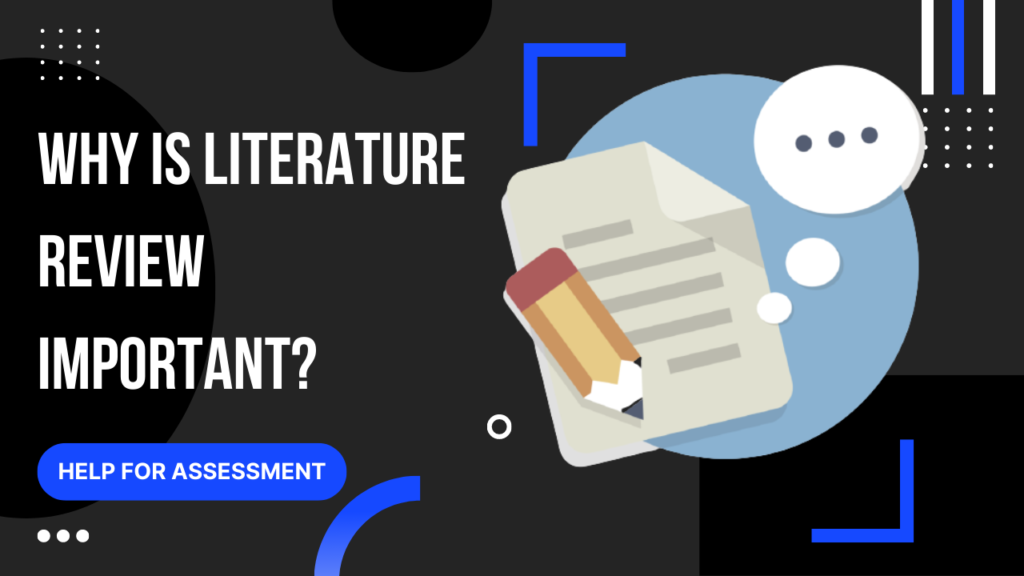
Every research project needs a literature review. And while it’s one of the most challenging parts of the assignment, in part because of the intensity of the research involved, it’s by far the most important section of a research paper.
Many students fail to write comprehensive literature reviews because they see the assignment as a formality.
For the most part, they’ll vaguely create a list of existing studies and consider the assignment complete. But such an approach overlooks why a literature review is important.
We need to take a step back and look beyond the definition of a literature review.
In particular, the goal of this guide is to help you explore the significance of the review of the existing literature.
Once you understand the role that literature reviews play in research projects, you’ll give the assignment the full attention that it deserves.
Key Takeaways
Writing a literature review is important for the following reasons:
- It demonstrates that you understand the issue you’re investigating.
- A literature review allows you to develop a more theoretical framework for your research.
- It justifies your research and shows the gaps present in the current literature.
Get Literature Review Writing Help
Do you find the workload involved in writing a literature review for your thesis, research paper, or standalone project overwhelming? We understand how involving the writing process can be, and we are here to help you with writing if you currently feel stuck.
You can hire a professional literature review writer from Help for Assessment to get the writing done for you. Whether you have a flexible deadline or the submission date for the literature is almost due, you can count on our team to help you get the paper done fast.
What is a Literature Review?
A literature review is a study of the already existing research in a given area of study.
While it’s common in physical and social sciences, instructors may also request student to complete the assignment within the humanities space.
The review can be a standalone project or a part of an academic assignment.
If your professor or instructor asks you to write the review as a standalone project, your focus will be on exploring how a specific field of inquiry has developed over the course of time.
In the case where you have to include the review as part of your academic paper, the goal will be to set the background for the topic (or issue) you’re currently investigating.
How is Literature Review Different from an Essay?
In an education setting whether students are used to writing tons of essays every month, it’s likely for many to wonder whether an essay could be the same as a literature review.
While a literature review and an essay both require research before writing, there are a number of differences between them that you need to know.
Types of Literature Review
We’ll look at the significance of a literature review in a moment.
For now let’s look at the types of literature reviews that your instructor may ask you to write.
As of this writing, there are 6 types of reviews that you need to know about. These are:
1. Argumentative Review
Examines a literature review with the intention to support or refuse an argument, with the aim being to develop a body of literature that can establish a contrarian point of view.
2. Integrative Literature Review
This type of review critiques and synthesizes related literature to generate a new framework and perspective on a topic.
Researchers have to address identical and/or related hypotheses or research problems to comply with research standards with regards to replication, vigor, and clarity.
3. Historical Literature
The focus of the review is to examine research within a given period, and usually starts from the time a research problem or issue emerged.
Then, you have to trace its evolution throughout the suggested timeframe within the scholarship of that particular discipline.
4. Methodological Literature Review
The focus shifts from what someone said to how they ended up saying what they said.
Since the focus here is on the method of analysis, methodological reviews gives a better framework that help one to understand exactly how a researcher draws their conclusion from a wide range of knowledge.
5. Systematic Literature
A systematic review focuses on the existing evidence related to a specific research question.
You will need to use a pre-specified and standardized approach to identify, evaluate, and appraise research, not to mention collect, analyze, and report data collected from the review.
Understand that the goal of a systematic review is to evaluate, summarize, and document research that focuses on a specific (or clearly defined) research problem.
6. Theoretical Literature Review
Theoretical review focuses on examining theories that resulted from an issue, a concept, or a situation.
It’s through this type of review that a researcher can easily establish the kind of theories that already formulated, the degree to what researchers have investigated them, and the relationship between them.
It’s through theoretical review that one can develop new hypotheses for testing and can therefore help to determine what theories aren’t sufficient to explain emerging research problems.
Why Is Literature Review Important?
Now that you know the difference between an essay and a review as well as the different types of literature review, it’s important to look at why it’s important to examine existing literature in your research.
There are a number of reasons why instructors ask you to write a review , and they’re as follow:
1. Demonstrate a Clear Understanding of the Subject
Writing a literature review demonstrates that you have a clear understanding of the subject you’re investigating.
It also means that you can easily identify, evaluate, and summarize existing research that’s relevant to your work.
2. Justify Your Research
There’s more to writing a research paper than just identifying topic and generating your research question from it.
You also have to go as far as to justify your research, and the only way to do that is by including a literature review in your work.
It’s important to understand that looking at past research is the only way to identify gaps that exist in the current literature.
That can go a long way to help fill in the gap by addressing them in your own research work.
3. Helps to Set a Resourceful Theoretical Framework
Because a research paper assignment builds up on the ideas of already existing research, doing a literature review can help you to set a resourceful theoretical framework on which to base your study.
The theoretical framework will include concepts and theories that you will base your research on. And keep in mind that it’s this framework that professors will use to judge the overall quality of your work.
Frequently Asked Questions
1. what are the benefits of literature review in research.
A literature review in research allows you to discover exiting knowledge in your field and the boundaries and limitations that exists within that field.
Moreover, doing a review of existing literature helps you to understand the theories that drive an area of investigation, making it easy for you to place your research question into proper context.
2. What is the Effect of a Good Literature Review?
In addition to providing context, reducing research redundancy, and informing methodology, a well-written literature review can maximize relevance, enhance originality, and ensure professional standards in writing.
3. What is a Strength of a Literature Review?
The strength of a literature review is the ability to improve your information seeking skills and enhancing your knowledge about the topic under investigation.
As you can see, a review is quite a significant part of a research project, so you should treat it with the seriousness that it deserves.
At the end of the day, you want to create a good connection between you and your readers, and the best way to do that is to pack just as much value as you can in your literature review project.
About the author
Antony W is a professional writer and coach at Help for Assessment. He spends countless hours every day researching and writing great content filled with expert advice on how to write engaging essays, research papers, and assignments.
An official website of the United States government
The .gov means it’s official. Federal government websites often end in .gov or .mil. Before sharing sensitive information, make sure you’re on a federal government site.
The site is secure. The https:// ensures that you are connecting to the official website and that any information you provide is encrypted and transmitted securely.
- Publications
- Account settings
Preview improvements coming to the PMC website in October 2024. Learn More or Try it out now .
- Advanced Search
- Journal List
- J Bras Pneumol
- v.44(6); Nov-Dec 2018
Critical appraisal of the literature. Why do we care?
Avaliação crítica da literatura. por que nos importamos, juliana carvalho ferreira.
1 . Methods in Epidemiologic, Clinical, and Operations Research-MECOR-program, American Thoracic Society/Asociación Latinoamericana del Tórax, Montevideo, Uruguay.
2 . Divisão de Pneumologia, Instituto do Coração, Hospital das Clínicas, Faculdade de Medicina, Universidade de São Paulo, São Paulo (SP) Brasil.
Cecilia Maria Patino
3 . Department of Preventive Medicine, Keck School of Medicine, University of Southern California, Los Angeles, CA, USA.
PRACTICAL SCENARIO
Investigators conducted a noninferiority, double-blind clinical trial involving 4,215 patients with mild asthma, randomly assigned to receive twice-daily placebo plus budesonide-formoterol used as needed vs. maintenance therapy with twice-daily budesonide plus terbutaline as needed. They found that budesonide-formoterol used as needed was noninferior to twice-daily budesonide concerning the rate of severe asthma exacerbations but was inferior in controlling symptoms. 1
HOW TO CRITICALLY APPRAISE THE MEDICAL LITERATURE
As clinicians, when we read a paper reporting the benefit of a given intervention, we make a judgment regarding whether we should use those results to inform how we care for our patients. In our example, after reading the paper, we ask ourselves: should a clinician working in a public hospital in Brazil start prescribing budesonide-formoterol as needed rather than maintenance budesonide for her patients with mild asthma? What criteria should guide her decision to adopt a new intervention? One may think that if a study is published in a high-impact, peer-reviewed journal, it is of high quality and should therefore be used to guide clinical decision making. However, if the population included in the study or the context is different from her population, that may not be the case. Therefore, examining the external validity of a study is critical to informing local practice.
Other commonly used criteria are related to evaluating the quality of the evidence by evaluating the type of study design used. The pyramid of evidence puts meta-analyses at the top (as providing the highest quality of evidence), followed by systematic reviews and randomized controlled trials; then come observational studies (cohort, case-control, and cross-sectional studies); whereas case reports and case series are categorized as offering the lowest quality of evidence. Although those criteria may be helpful, making a detailed appraisal of a paper, taking into account aspects other than the study design, is a skill that researchers and clinicians can learn and apply when reading the literature.
Critical appraisal is the systematic evaluation of clinical research papers that helps us establish if the results are valid and if they could be used to inform medical decision in a given local population and context. There are several published guidelines for critically appraising the scientific literature, most of which are structured as checklists and address specific study designs. 2 Although different appraisal tools may vary, the general structure is shown in Table 1 .
The items in Table 1 are a guide to appraising the content of a research article. There are also guidelines for appraising the quality of reporting of health research which focus on the reporting accuracy and completeness of research studies. 3 These two types of appraisal (content and reporting) are complementary and should both be used, because it is possible that a research paper has high reporting quality but is not relevant to the context in question.
KEY MESSAGE
Critical appraisal of the literature is an essential skill for researchers and clinicians, and there are easy-to-use guidelines. Clinicians have the responsibility to help patients make health-related decisions, which should be based on high-quality, valid research that is applicable in their context.

IMAGES
VIDEO
COMMENTS
Importance of literature review in research: The importance of literature review in scientific manuscripts can be condensed into an analytical feature to enable the multifold reach of its significance. It adds value to the legitimacy of the research in many ways: Provides the interpretation of existing literature in light of updated ...
Purpose and Importance of the Literature Review. An understanding of the current literature is critical for all phases of a research study. Lingard 9 recently invoked the "journal-as-conversation" metaphor as a way of understanding how one's research fits into the larger medical education conversation. As she described it: "Imagine yourself joining a conversation at a social event.
Writing a literature review requires a range of skills to gather, sort, evaluate and summarise peer-reviewed published data into a relevant and informative unbiased narrative. Digital access to research papers, academic texts, review articles, reference databases and public data sets are all sources of information that are available to enrich ...
Besides the obvious reason for students -- because it is assigned! -- a literature review helps you explore the research that has come before you, to see how your research question has (or has not) already been addressed. You identify: core research in the field. experts in the subject area. methodology you may want to use (or avoid)
What kinds of literature reviews are written? Narrative review: The purpose of this type of review is to describe the current state of the research on a specific topic/research and to offer a critical analysis of the literature reviewed. Studies are grouped by research/theoretical categories, and themes and trends, strengths and weakness, and gaps are identified.
Why is it important? A literature review is important because it: Explains the background of research on a topic. Demonstrates why a topic is significant to a subject area. Discovers relationships between research studies/ideas. Identifies major themes, concepts, and researchers on a topic. Identifies critical gaps and points of disagreement.
This is why the literature review as a research method is more relevant than ever. Traditional literature reviews often lack thoroughness and rigor and are conducted ad hoc, rather than following a specific methodology. ... Literature reviews play an important role as a foundation for all types of research. They can serve as a basis for ...
A literature review is a critical summary and evaluation of the existing research (e.g., academic journal articles and books) on a specific topic. It is typically included as a separate section or chapter of a research paper or dissertation, serving as a contextual framework for a study.
A literature review is meant to analyze the scholarly literature, make connections across writings and identify strengths, weaknesses, trends, and missing conversations. A literature review should address different aspects of a topic as it relates to your research question. A literature review goes beyond a description or summary of the ...
Examples of literature reviews. Step 1 - Search for relevant literature. Step 2 - Evaluate and select sources. Step 3 - Identify themes, debates, and gaps. Step 4 - Outline your literature review's structure. Step 5 - Write your literature review.
A literature or narrative review is a comprehensive review and analysis of the published literature on a specific topic or research question. The literature that is reviewed contains: books, articles, academic articles, conference proceedings, association papers, and dissertations. It contains the most pertinent studies and points to important ...
A sophisticated literature review (LR) can result in a robust dissertation/thesis by scrutinizing the main problem examined by the academic study; anticipating research hypotheses, methods and results; and maintaining the interest of the audience in how the dissertation/thesis will provide solutions for the current gaps in a particular field.
7 Reasons Why Research Is Important Learn the true importance of research in daily life. Research is an invaluable skill that's necessary to master if you want to fully experience life. Concept Mapping to Write a Literature Review This article will explain how to use concept mapping to write an in-depth, thought-provoking literature review or ...
Literature search. Fink has defined research literature review as a "systematic, explicit and reproducible method for identifying, evaluating, and synthesizing the existing body of completed and recorded work produced by researchers, scholars and practitioners."[]Review of research literature can be summarized into a seven step process: (i) Selecting research questions/purpose of the ...
The objective of a Literature Review is to find previous published scholarly works relevant to an specific topic. A literature review is important because it: Explains the background of research on a topic. Demonstrates why a topic is significant to a subject area. Discovers relationships between research studies/ideas.
Reason #3: Setting a Theoretical Framework. It can help to think of the literature review as the foundations for your study, since the rest of your work will build upon the ideas and existing research you discuss therein. A crucial part of this is formulating a theoretical framework, which comprises the concepts and theories that your work is ...
A literature review is a study - or, more accurately, a survey - involving scholarly material, with the aim to discuss published information about a specific topic or research question. Therefore, to write a literature review, it is compulsory that you are a real expert in the object of study. The results and findings will be published and ...
Key Takeaways. Writing a literature review is important for the following reasons: It demonstrates that you understand the issue you're investigating. A literature review allows you to develop a more theoretical framework for your research. It justifies your research and shows the gaps present in the current literature.
Some Issues in Liter ature R eview. 1. A continuous and time consuming process runs. through out r esearch work (more whil e selecting. a resear ch problem and writing 'r eview of. liter ature ...
Systematic reviews that summarize the available information on a topic are an important part of evidence-based health care. There are both research and non-research reasons for undertaking a literature review. It is important to systematically review the literature when one would like to justify the need for a study, to update personal ...
Implementing evidence into practice requires nurses to identify, critically appraise and synthesise research. This may require a comprehensive literature review: this article aims to outline the approaches and stages required and provides a working example of a published review. Literature reviews aim to answer focused questions to: inform professionals and patients of the best available ...
The first element we discuss is a review of research (literature reviews), which highlights the need for a specific research question, study problem, or topic of investigation. ... Including a conceptual framework in a research study is important, but researchers often opt to include either a conceptual or a theoretical framework. Either may be ...
We review the literature on the effects of Artificial Intelligence (AI) adoption and the ongoing regulatory efforts concerning this technology. Economic research encompasses growth, employment, productivity, and income inequality effects, while regulation covers market competition, data privacy, copyright, national security, ethics concerns, and financial stability.
Critical appraisal is the systematic evaluation of clinical research papers that helps us establish if the results are valid and if they could be used to inform medical decision in a given local population and context. There are several published guidelines for critically appraising the scientific literature, most of which are structured as ...